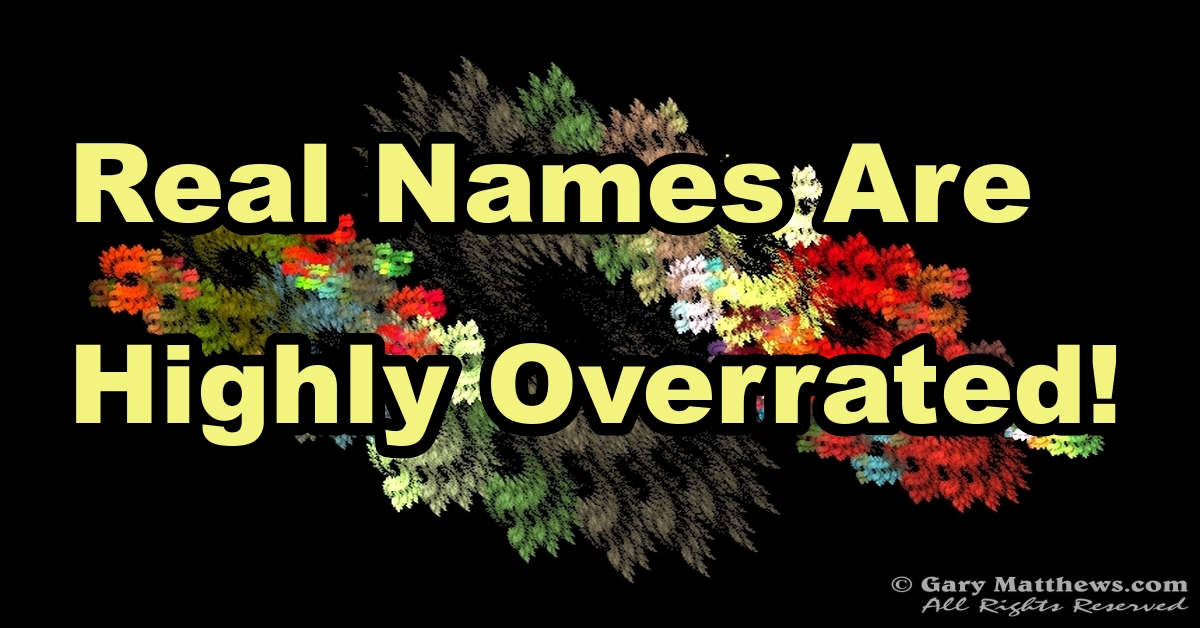Google recently reversed its “real names” requirement for members of its Google Plus social network.
Good call, Google — and good riddance. It’s about time!
In the Internet’s early days, being online was all about anonymity. You could create a mask. You could hide behind it in cyberspace. You could be — or appear to be — anyone you wanted.
People reveled in the freedom. The downside, of course, was that we never knew for sure who we were talking to. Unless it was someone we knew “IRL” ( in real life). Maybe not even then.
Imposing a “New Normal”
Social networks, run by big-data conglomerates, tried to change that. They started insisting everyone use real names, provide real addresses, real phone numbers. Clearly they’d like to match up our online profiles with our fingerprints and retinal scans.
The new normal, they told us, was no longer anonymity — it was “verified identity”. Henceforward the cost of anonymity was to be irrelevance. A finger-wagging Google executive warned that if we needed to say something anonymously, we probably shouldn’t be saying it.
This “real names” kick never was for the benefit of Internet users. It was for the benefit of corporate conglomerates. It was so they’d be better able to track us online with ᴛᴀʀɢᴇᴛᴇᴅ ᴀᴅs. It was all about money.
Escaping the Goldfish Bowl
A funny thing happened, though, on the way to the goldfish bowl: Users rebelled.
It turns out people like the option of hiding behind an “avatar” as those online masks are called. Authors want the option of using pen-names. Freedom fighters want to keep their oppressors in the dark as to where they meet and with whom they have lunch. Gay-rights activists want the power to organize rallies without getting harassed (or fired) at work. Superman and Spider-Man want to preserve their aliases.
And some of us just want to protect what few shreds, if any, are left of our privacy.
The thing is — I don’t know anyone who ever took the real-names business seriously! If you wanted to call yourself “Tofu Fighter” or “Disaster Blaster” then by golly, you went ahead and did it. If you wanted a Facebook page or a Twitter account for your pet, you opened one.
So Google officially gave up! Smart choice, folks: Your let’s-see-some-ID obsession was on its way to rendering you irrelevant.
I’m not sure whether Facebook has thrown in the towel yet, but it will. Anonymity is back.
So Watch Your Back!
Yes, it’s been abused before, and will be again. I know one “search engine optimizer” with hundreds of fake profiles with which he hopes to fool Google. (Fat chance.) People use false names for dating fraud, cyber-bullying, and identity theft.
But the abusers were abusing their anonymity anyway. Corporate demands for real names only burdened those with legitimate uses for them, like authors with pseudonyms.
As a journalist, I once wrote under a pen-name to protect my sources (and myself) for a sensitive investigation. I’m no longer using that alias, but I’ve kept it alive in case I need it again.
So I, for one, won’t mourn the real-names debacle. What about you? (Feel free, if you like, to comment anonymously!)

